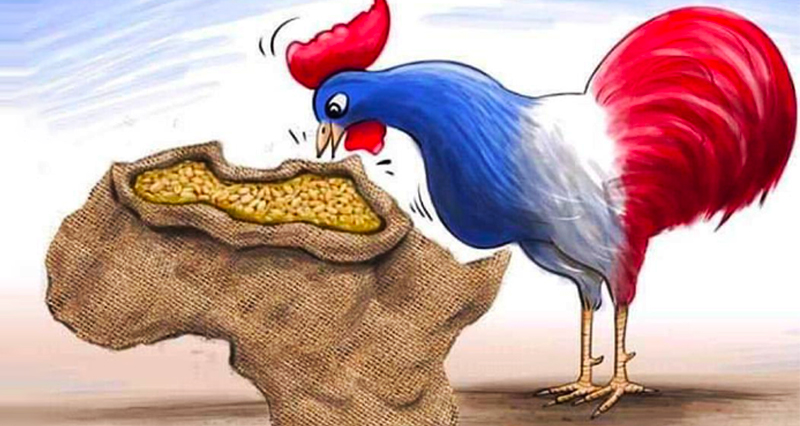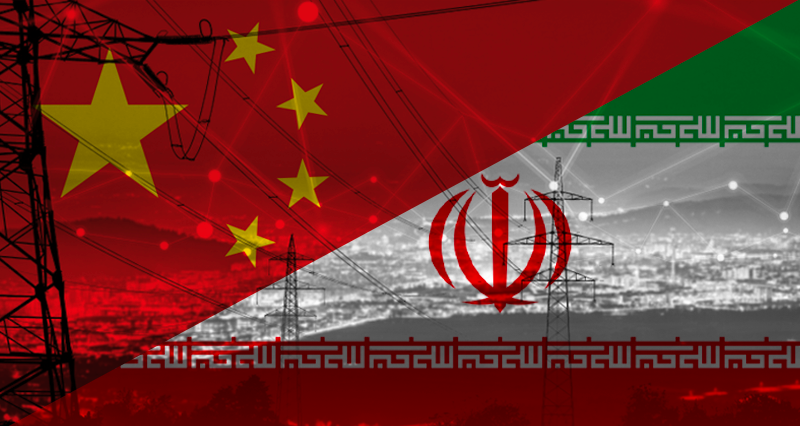By Islam Farag, Cairo / Egypt
For the first time in decades, no political coalition was able to obtain an absolute majority in the French National Assembly, which requires winning 289 seats.
In a big surprise, the New Popular Front, topped the political scene by winning 182 seats, ahead of President Emmanuel Macron’s alliance, which won only 168 seats, while the National Rally made a big leap by winning 143 seats.
African Welcome
The great results achieved by the Front, a broad electoral alliance of left-wing parties, were clearly welcomed in many popular and official sectors in Africa, with the hope of a radical change in Paris’s policies towards the continent.
The coalition that won the majority announced its refusal to cooperate with the camp of President Emmanuel Macron, in a signal that the Africans picked up on the possibility of new trends in France’s foreign policies.
Recent years have witnessed a clear African rebellion against relations with Paris, in Burkina Faso, Mali and Niger. The three countries witnessed military coups that quickly succeeded in gaining acceptance and legitimacy among the citizens of those countries simply by raising slogans against France and subservience to it. The ruling military juntas in the three countries presented themselves as national movements against French colonial influence, which stripped the citizens of those countries of their country’s resources and destroyed their future.
The matter was not limited to this point, as the blows to French influence extended to the Arab countries of Africa. During the earthquake that Morocco witnessed in 2023, Rabat rejected a French offer of assistance, which could be explained by the existence of a crisis between the two countries.
At the same time, rivals Algeria and Morocco are expanding English language education with the intention of reducing French cultural influence in the two countries.
There are several African countries that place responsibility for the destruction of Libya on France, as it is the country that encouraged NATO to strike it during the revolution against the Gaddafi regime.
Loss of credibility
President Emmanuel Macron tried a lot to court French African countries, disavow his country’s colonial past, and confirm his desire to end this era. But the countries of that region have grown up and are no longer fooled by sweet talk.
In fact, France has lost its credibility within the continent because it did not care about the promises it made.
Over the past years, Africans have welcomed Macron’s visit with demonstrations in Gabon denouncing Paris’s support for President Omar Bongo, who has been in power since 2009, and who inherited power from his father without any entitlement.
In the Democratic Republic of the Congo, the Congolese demonstrated against what they called French “silence” on Rwanda’s support for Tutsi rebels in eastern Congo. President Felix Tshisekedi confronted him by rejecting French double standards in dealing with the countries of the continent.
Although Macron’s visits to the countries of the continent exceeded 20, they did not succeed at all in changing the attitudes of Africans towards his country. Many see his efforts in this field as nothing more than attempts to circumvent the results of old policies by formulating a relatively acceptable approach.
Miserable attempts
In fact, the French President only aims in his miserable attempts to confront the growing Russian influence within the continent by reducing the appearance of the military presence. French promises to change the pattern of policies and relations with Africa lack practical initiatives on the ground, and stop at the level of intentions only, and most of them are still captive to security calculations.
All these promises also fall short of achieving one of the most important demands of Africans, which is to compensate them for the period of exploitation, without which all words of apology or recognition for past mistakes remain worthless. This issue is the real proof of a fundamental change in Paris’s policies towards the continent, something that many people rule out given France’s failure to develop policies that are compatible with the social and political transformations in Africa.
Serious alternatives
African countries are finding for themselves more serious alternatives in terms of cooperation than Macron’s France, such as China, Russia, India, Türkiye, Saudi Arabia, and Israel.
Most sectors of the African people have now agreed to reject the French presence, with Paris’s repeated pledges to adopt new policies failing in the face of the fact that French military intervention is intertwined with the phenomenon of coups on the continent, which have exceeded 60 interventions since the independence of its countries. These are the coups and interventions that led to the deterioration of the situation in those countries.
Therefore, the defeat of President Macron’s coalition in the elections was met with great enthusiasm, especially with the failure of its governments to confront the root problems causing terrorism and violence in the Sahel region, such as local disputes over land and water, which were a major reason for the success of armed groups in winning new elements into their ranks.
With the failure of the governments of the Sahel countries loyal to Paris to carry out their tasks in confronting these problems, the coup leaders in Mali, Burkina Faso, and Niger presented themselves as saviors from French colonial domination and its puppet regimes. Their first steps were to seek help and cooperation from other countries, some of which were considered rivals to France and the United States.
Unjustified optimism
In my personal opinion, African optimism about the possibilities of a radical change in France’s policy towards the continent, with the possibility of the left taking power, is unjustified.
Previous experiences have shown that the issue of adopting new policies towards Africa remains, in fact, subject to momentary changes.
This can be explained by the fact that Africa has not been a priority at the level of French institutions since the 1980s. The French Foreign Ministry has long neglected to appoint experienced competencies to manage this file, and has been satisfied with elements who do not have sufficient experience.
At the same time, the management of this file remained focused only on two aspects: the military and the economic, which clearly reflects the exploitative nature of Paris’s movements within the continent. For example, this became clear with France’s failure in the Sahel countries. In an attempt to avoid further failure, the French government has restructured the African affairs team at the Ministry of the Interior.
From this standpoint, any expectations of a radical change in African policies adopted by Paris are nothing more than exaggerations. Any change of this kind would require, first and foremost, purging French policies of their exploitative character, which is inevitably unlikely. Clearly, no left-led government, no matter what it claims, can seriously review the policies that exploit the resources of the French franc zone, which includes 14 countries in West and Central Africa.
The second fact that optimists ignore is that the left’s victory in the elections came after a significant decline in Paris’s influence within the continent, which makes changing old policies a difficult task for any government.
At the same time, the program of New Popular Front focused on internal issues that concern the livelihood of French citizens. Even at the level of foreign policies, Africa’s presence was not as clear as its position on the Palestinian issue.
Regarding the military presence, the French government took a step last June aimed at redistributing its military presence. The step was to create the so-called “African Command” within the French Armed Forces. This step, which aims to revitalize the French military presence in the neighboring countries of Mali, Niger and Burkina Faso, is not expected to be canceled by any future government.
In addition to all of this, no matter how freely the next government moves in formulating new policies towards Africa, we cannot ignore the powers that President Macron enjoys in choosing the prime minister and in formulating Paris policies at all economic, political and military levels.
Any optimistic expectations for a change in Paris’s policies towards Africa, based on the assumed principles of the French left against international exploitation and France’s well-known practices within the continent, also collide with complex military and security considerations, in addition to intertwined interests between the beneficiaries within Paris on the one hand and within the African countries themselves on the other hand.

















Leave a Reply